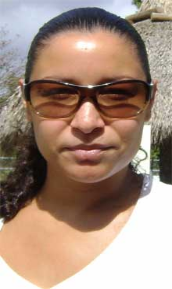 First and foremost, remember, missing person investigations can be emotionally charged, complex, and sensitive. Missing persons in Costa Rica can be especially challenging. Always prioritize the well-being of the missing person and their loved ones, and maintain a strong commitment to ethical and legal practices throughout the process.
First and foremost, remember, missing person investigations can be emotionally charged, complex, and sensitive. Missing persons in Costa Rica can be especially challenging. Always prioritize the well-being of the missing person and their loved ones, and maintain a strong commitment to ethical and legal practices throughout the process.
Locating foreign nationals who have gone missing in Costa Rica can be both, a challenging and sensitive task. Here’s our step-by-step approach to conducting a missing person investigation for foreign nationals in Costa Rica, while considering confidentiality and admissibility in U.S. courts:
Initial Assessment:
Gather all available information about the missing person, such as personal details, last known whereabouts, contacts, and circumstances of their disappearance. Also, establish contact with their friends, family, and acquaintances to gain insights into their activities and potential reasons for the disappearance.
Legal and Ethical Considerations:
Understand and adhere to both Costa Rican and U.S. laws and regulations regarding missing person investigations, privacy rights, and surveillance. Work with legal experts who are familiar with both jurisdictions to ensure your actions are within the boundaries of the law.
Working with Local Authorities:
Establish contact with local law enforcement agencies in Costa Rica to report the missing person and seek their assistance. Collaborate closely with them and provide any relevant information that might aid in the investigation.
Engage Local Resources:
Utilize local contacts, investigators, and translators to navigate language barriers and cultural differences effectively. Local expertise can be invaluable in understanding local customs, and laws, and gathering accurate information.
Surveillance and Investigation:
Conduct discreet surveillance in accordance with Costa Rican laws to gather information about the missing person’s movements and potential whereabouts. This may involve visiting locations they were last seen, talking to witnesses, and utilizing technology for tracking.
Digital Footprint Analysis:
Analyze the missing person’s digital footprint, including social media accounts, emails, and online activity. This could provide insights into their state of mind, recent interactions, and potential clues about their location.
Engage Private Investigator Expertise:
Consider hiring a licensed private investigator in Costa Rica who specializes in missing person cases. They can provide valuable insights and have local connections that can facilitate the search.
Family Liaison and Support:
Maintain open communication with the missing person’s family, keeping them updated on the progress of the investigation. Provide emotional support and reassurance during what can be a difficult and stressful time.
Documentation and Evidence Preservation:
Carefully document all findings, interactions, and evidence gathered during the investigation. Ensure that evidence is collected legally, ethically, and in a way that maintains its admissibility in U.S. courts if needed.
Admissibility in U.S. Courts:
Keep thorough records of the investigation process, including the methods used, evidence collected, and any local authorities involved. This documentation can be crucial if the case eventually involves legal proceedings in U.S. courts.
Privacy and Confidentiality:
Protect the privacy of both the missing person and any individuals encountered during the investigation. Avoid disclosing sensitive information unless necessary for the investigation or required by law.
The post Missing Person in Costa Rica appeared first on Cody L. Gear & Associates.